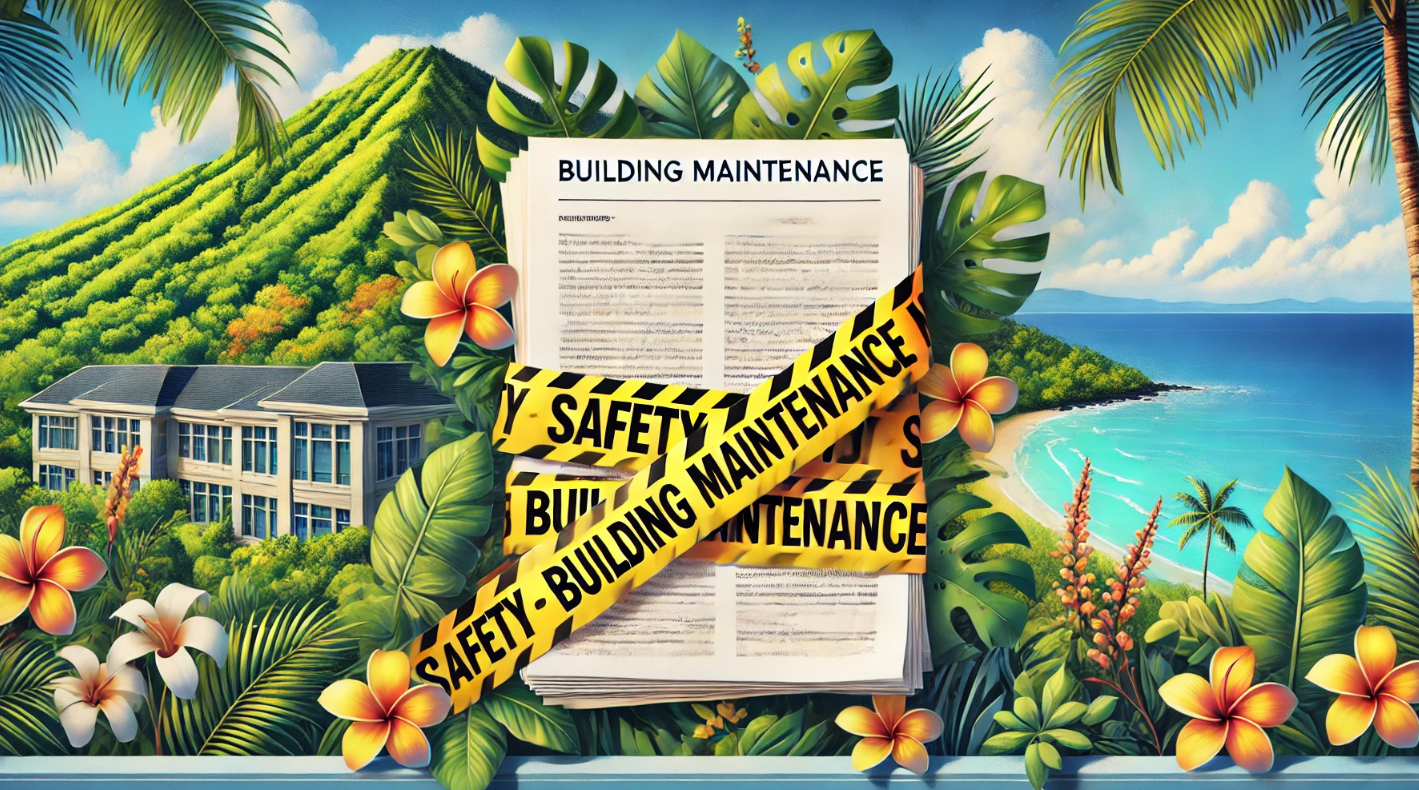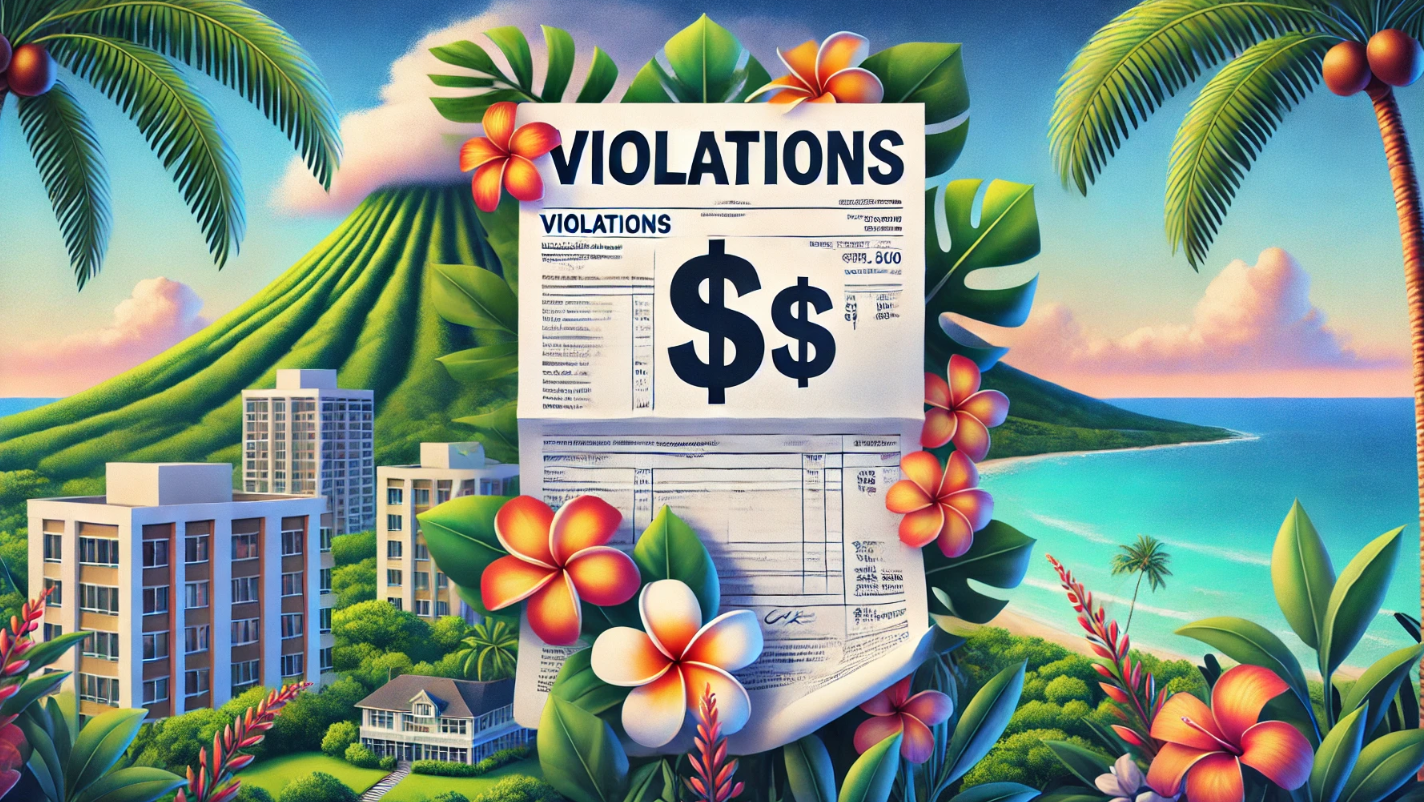“A precedent is something that precedes, or comes before. The Supreme Court relies on precedents—that is, earlier laws or decisions that provide some example or rule to guide them in the case they’re actually deciding.”
🛑 Why This Matters: Real Cases. Real Consequences.
When homeowners speak up—and back it with proof—justice is possible.
Across the country, HOAs and condo boards have been caught in serious misconduct: from multimillion-dollar fraud schemes to unlawful board elections and ignored fiduciary duties. Below, you’ll find real-world examples, legal insights, and case studies to help owners like you recognize red flags, understand your rights, and take action.
🌀 Scroll down to explore downloadable resources and official source links on:
- Landmark lawsuits and settlements
- Expert legal opinions on HOA corruption
- Successful board removals led by everyday homeowners
Precedent empowers change. Know the law, share the truth, and protect your community.
FRAUD & EMBEZZLMENT
Hammocks wins $2M settlement in suit claiming ex-HOA leaders allowed massive fraud
The Hammocks won a $2 million settlement in a case accusing former board members of turning a blind eye to an alleged massive fraud that plundered millions of dollars from association coffers.
The Hammocks, South Florida’s biggest homeowners association with over 18,000 residents in south Miami-Dade County, has been working to claw back association funds after police arrested four former board members last year for their role in allegedly looting the community’s accounts.
The Miami-Dade State Attorney’s office claimed a roughly $2 million scheme, though a subsequent investigation by Hammocks receiver David Gersten revealed the alleged fraud topped $3 million.
In April, Gersten, who has overseen the Hammocks since the arrests, sued four additional board members: Ligia Capielo, Merlene Kopec, Madeline Maceda and Luz Ordonez. While they were not criminally charged, they failed to curb their arrested colleagues, including letting them funnel funds “without insisting on even minimal documentation to support the illicit payments,” according to filings in the civil suit.
Capielo, Kopec, Maceda and Ordonez denied the allegations in court responses and pushed against claims that they knew or should have known about the fraud, partly arguing that they relied on the advice of board attorneys.
The four tried to get the suit dismissed, but a judge shot down their motion in July.
After that, both sides started negotiations that ended with attorneys for the defendants agreeing to settle the case by tendering the full $2 million insurance policy covering association directors and officers, according to court records. D & O policies, or directors and officers insurance policies, cover HOA leaders from liability, including in suits filed by residents.
Miami-Dade Circuit Court Judge Beatrice Butchko approved the settlement this month.
It marked the latest chapter in the Hammocks saga that dates back to at least 2017 when residents started complaining about association mismanagement and opaque financials. The Hammocks is between Southwest 120th and 88th streets and between Southwest 147th and 162nd avenues in unincorporated Miami-Dade County.
In November, authorities arrested former board president Marglli Gallego, depicted by prosecutors as the ringleader of the fraud, and her husband, Jose Gonzalez. Also arrested were former board members Myriam Rodgers, Yoleidis Lopez Garcia and Monica Isabel Ghilardi.
Their alleged fraud was tied to kickbacks by hiring bogus vendors for supposed maintenance of the 3,800-acre Hammocks, according to an affidavit from an investigator in the state attorney’s office. The association’s payments for the work were diverted, much of it to Gallego and Gonzalez.
All five have pleaded not guilty.
In the civil suit, Gersten claimed that Capielo, Kopec, Maceda and Ordonez did nothing about the board hiring “insiders,” or family members of the arrested board members.
The case takes aim at Maceda, who served on the board from 2017 to last year, because she oversaw association financials as the board’s treasurer, including hiring and paying vendors. But Maceda’s attorneys claimed in filings that the suit fails to specifically allege that she knew or should have known about the scheme. Moreover, Maceda is a “lay person,” making Gersten’s allegation that she should have known about an association’s attorney’s conflict of interest in an unrelated case a “perplexing” claim, her attorneys argued.
Gersten also claimed that the board members allowed the early closing of the polls during a board election in January of last year. But that election was held before Capielo, Kopec and Ordonez were even on the board, attorneys for the defendants argued.
Neither Gersten nor attorneys for the four former board members returned requests for comment.
The Hammocks is perhaps the biggest HOA litigation over alleged board fraud in recent years.
Aside from the criminal case, in July Gersten also sued law firms that represented the board, including an attorney who filed defamation lawsuits against law enforcement officers who were investigating allegations of fraud at the Hammocks. Another law firm allegedly ignored conflicts of interest by representing both the association and Gallego in criminal charges filed against her in 2021, according to the complaint.
Many other South Florida residents who live in communities governed by condo or homeowners associations have accused their board members of various types of fraud, including meddling in elections and self-enrichment.
This month, police arrested a former president of the Blue condominium at 601 Northeast 36th Street in Miami’s Edgewater neighborhood. Ben Dvir, 47, allegedly directed a vendor to the condominium to inflate invoices, with Dvir pocketing the markup, according to an arrest affidavit.
FRAUD: Legal Opinion
The following article was published by The Sun online and reiterates what many have been telling the Hawaii DCCA for years about “fraudulent conduct in the voting process.”
‘TOXIC SITUATION’ I’m a lawyer – the biggest problem with HOAs will always be ‘rampant’ if normal people remain in total control
By Rachel Dobkin Published: 16:08 ET, Oct 4 2023 Updated: 13:00 ET, Oct 5 2023
A LAWYER who advocates for homeowners has revealed a rampant issue of fraud among HOAs when everyday people are in complete control.
There have been many stories of combativeness between homeowners and their HOA boards, typically over things like lawn or home aesthetics.
However, Attorney David B. Haber from Haber Law has exposed a bigger issue within HOAs – fraud and coverups.
Haber, who has over 30 years of experience, helps high-profile condo associations in South Florida, and one of the schemes he has encountered was HOAs hiring licensed contractors who are the family or friends of board members to funnel in stolen money. “So basically they’re able to kind of hide the fraud by telling residents this money’s going towards this or that, but then they just channel it in themselves. “Or they funnel it to their friends, and some of them are even unlicensed and not qualified to perform the work,” Haber explained, noting that these workers are dealing with the structural integrity of the buildings.
Haber warned that there are hundreds of thousands, if not millions of dollars put into the construction of the buildings that these HOAs are representing. “And these associations have control of this money, these boards, and it can be very dangerous if they’re not abiding by law,” he said. The lawyer added that these board members are “lay people dealing with other people’s money.” Haber said that this fraud tactic is “rampant. It’s not something that is unique and it happens all the time.”
One recent example of HOA board members defrauding the homeowners they are meant to represent happened within Florida’s largest HOA, the Hammocks Community Association (HCA), which covers 40 communities in West Kendall, about 52 minutes southwest of Miami. Former and current board members, including a former HOA president’s husband, were arrested in November 2022 and accused of stealing at least $2 million from homeowners. Those arrested included former HOA president Marglli Gallego and her husband, Jose Antonio Gonzalez, president at the time, Monica Isabel Ghilardi, board member Myriam Arango Rodgers, and former board member Yoleidis Lopez Garcia.
“What this particular situation shows is that there are still significant deficiencies in the Florida laws and administrative procedures dealing with elections and how to deal with corruption within condominium and HOA boards,” Haber said.
He added that the Department of Business Professional Regulation (DBPR) Division of Condominiums, Timeshares, and Mobile Homes lacks sufficient funding for investigators, “particularly in South Florida where you have so many condominiums and HOAs.”
“I believe there should be a special state attorney task force that is solely charged with the responsibility of investigating these alleged crimes,” Haber said, noting that “we don’t have the resources currently to properly enforce the laws that are passed.”
Homeowners of the HCA tried to oust Gallego and her supporters on the board for years, the Miami Herald reported in November 2022. Haber called the HCA’s situation “very toxic,” adding that “It’s very difficult in an HOA like that with so many owners to overthrow and overturn a board.” In general, the lawyer pointed to issues within the voting process during HOA board elections. “People taking proxies, people forging ballots, just absolute, fraudulent conduct in the voting process itself,” Haber said.
In a statement to The U.S. Sun, DBPR said the “Division of Condominiums, Timeshares and Mobile Homes has authority to arbitrate homeowners’ association election and recall disputes under Chapter 720, Florida Statutes. However, the Division does not have authority to investigate complaints under Chapter 720, Florida Statutes.”
BOARD REMOVAL
The Board at Liliuokalani Gardens was removed for failure to perform their fiduciary duty. The above attachment was the call to action created by the ownership to stop an $11 million dollar assessment.
You can scroll their updates and see how they were able to successfully remove board members with a vote.
Here is their letter to the owners after successfully petitioning for a special vote.
Todays email to all Concerned Owners!
1/6/2019
Aloha Liliuokalani Gardens Owners,
Our group of over 170 concerned owners has successfully petitioned our board of directors for a special meeting to recall and replace the entire current board. You will see the attached letter from Hawaiiana in the mail today, or early next week – setting the meeting date for February 13, 2019.
PLEASE DO NOT SEND ANYTHING BACK TO HAWAIIANA OR TO OTHER OWNER ASKING FOR YOUR PROXY:
WE WILL SEND YOU OUR LETTER WITH MORE INFORMATION AND OUR PROXY TO BE SIGNED BY YOU AND RETURNED DIRECTLY TO US!
We know that this has been a very trying time for many owners…. We anticipate there may be problems with future confusing/scare tactics, such as:
1) Some owners have reminded us of a very misleading owner’s letter regarding a previous board election
2) Last week, we had an anonymous distribution of a vague magazine article citing plumbing issues in construction during the 60’s & 70’s, thus mainly irrelevant to our buildings’ 1979 building codes.
Watch out for this and other possible scare tactics over the next few weeks leading up to the special meeting.
Please don’t be misled – check our website and don’t hesitate to contact us if you have any questions.
Stay tuned! We will be in touch shortly.
Mahalo for your continued support!
Steven Vannatta, Scott Swartz, Michael Polesky, Vladimir Crnjak, Neil Bates, John and Kazuko Franklin and the rest of COLGW Team
RETALIATION
Prominent Honolulu Condo Directors Pay $600,000 To Settle Retaliation Claim
The case pitted a retired Army colonel against executives with leading developers MacNaughton and the Kobayashi Group.
By Stewart Yerton / July 13, 2023
The directors of a landmark Honolulu condominium have agreed to pay $600,000 to settle a lawsuit brought by a fellow director who alleged he faced retaliation for raising concerns about the condo board.
The litigation involving Hokua at 1288 Ala Moana had been closely watched by advocates for condo owners as the first major test of a 2017 law designed to prevent condominium boards from retaliating against owners, board members and managers who raise questions about potential violations of Hawaii condo law or association bylaws.
The settlement provides more than token relief for Mark Brown, a retired Army colonel and former member of the board that oversees Hokua. Joining Brown as a plaintiff was Harvey Hampton, a fellow condo owner.
📷Directors of the condominium association overseeing Hokua at 1288 Ala Moana agreed to pay $600,000 to settle a lawsuit accusing them of mismanaging the property and retaliating against the plaintiff for raising questions. (David Croxford/Civil Beat/2023)
Defendants included prominent members of Hawaii’s real estate and development community who served alongside Brown as directors of the Association of Apartment Owners of Hokua at 1288 Ala Moana. Developed by the Kobayashi Group, MacNaughton and Alexander & Baldwin, Hokua was among the first in a wave of luxury condo towers built in a part of Kakaako now known as Ward Village.
Named in the suit were Alana Kobayashi Pakkala, an executive vice president and managing partner of the Kobayashi Group; MacNaughton employee Todd Hedrick; Scott MacKinnon, a lawyer for Hokua’s developers; Vernon Inoshita, a prominent architect whose firm designed Hokua’s Alii Penthouse; and Walter Guild, a colleague of Kobayashi Pakkala’s husband at a real estate company that has served as a broker for Hokua and other Kobayashi-MacNaughton condo projects. Also named were Duane Komine, Hokua’s building manager, and Hawaiiana Management Co. Ltd.
Brown’s lawyer, Terry Revere, declined to comment; the defendants’ lawyer, Matt Shannon, also declined to comSUIT ALLEGED CONFLICTS OF INTEREST
The lawsuit’s overarching allegation was that the board members used their positions to help themselves and each other without disclosing conflicts of interest as required by association bylaws. When Brown began investigating and raising questions about the purported misdeeds, the suit says, other board members retaliated by removing him from key board positions.
For example, one allegation centered on a no-bid interior decorating contract awarded to Philpotts Interiors, which is owned by Guild’s aunt. Brown said the board voted to hire Philpotts based on Kobayashi Pakkala’s claim that the work would cost about $8,500. Brown later discovered a contract for up to $22,500 plus any costs for additional services.
After Brown informed Guild, Kobayashi and other board members of the disparity between the estimate and actual cost, the suit claimed, Guild improperly retaliated by removing Brown from the renovations committee.
Although the case went to trial before state court Jude Dean Ochiai, the parties settled in late May, before the jury had the chance to issue a verdict. Terms of the settlement were not disclosed; however, Civil Beat obtained a copy of the document showing how much the defendants agreed to pay.
Lila Mower is president of the Kokua Council and an advocate for expanding rights of condominium owners. She expressed disappointment that the court never had the opportunity to rule on the matter and thereby clarify the contours of the state condo law’s anti-retaliation provision.
“What does the court want to see in order for us to prove that retaliation exists?” Mower said.
Brown’s case, she said, reflects a situation that’s all too common: a board member or condo owner discovers and reports suspected misconduct — then faces retaliation for speaking up. In addition, she said, the individual board members will face no penalties, as the settlement will likely be paid by a firm providing liability insurance for directors and officers.
“Owners are going to have to pay for increased D&O coverage,” she said. “I always find that part unfair.”








